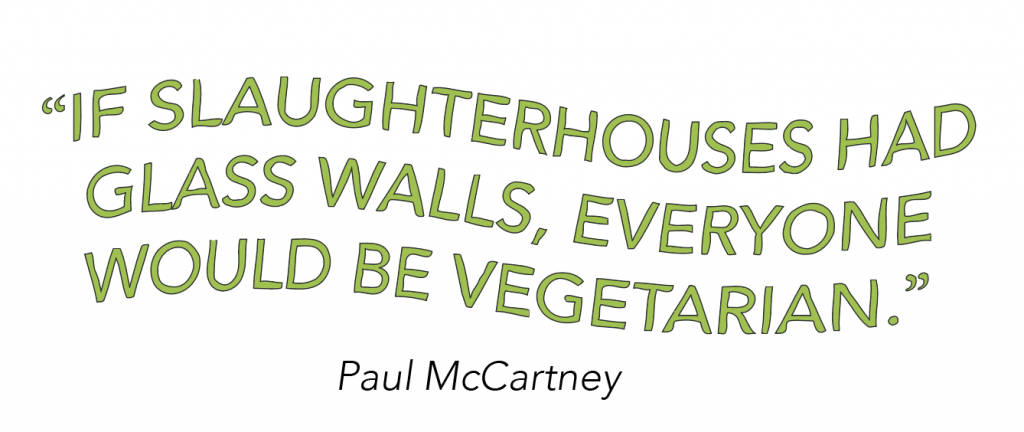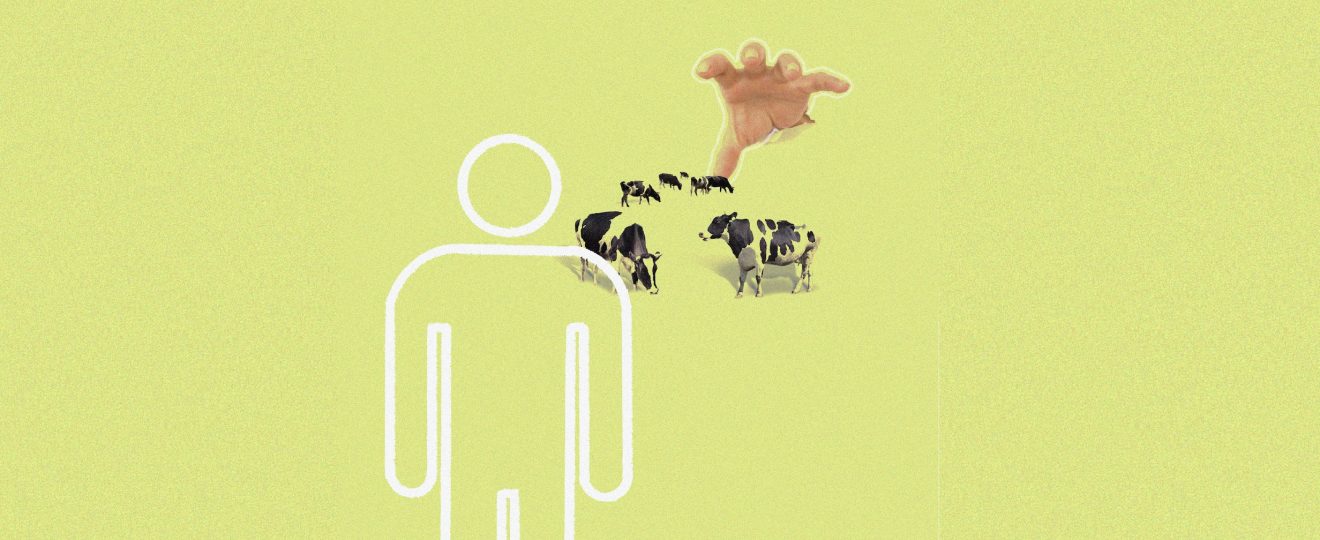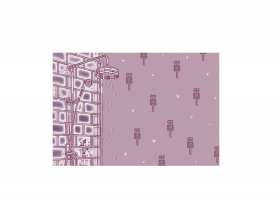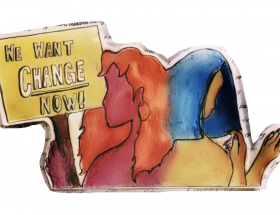Meat tastes amazing and no one will ever be able to deny that.
Before I stopped eating meat, Panda Express Orange Chicken was my absolute favorite food in the world and still to this day, eight years into a vegetarian lifestyle and a year into a vegan one, I still remember that taste. Because meat tastes so amazing, it has been normalized for our everyday lives; and due to genius marketing tactics on behalf of the meat industry, it is unlikely that meat will ever go away.
This is fine.
Few animal rights activists are actually advocating for the abolishment of animals-as-food; it’s just that those who are, tend to have the loudest voice.
Because it has become so normalized to consume meat, we as a society have created a distance between the food on our plates and the animals who became that food. We don’t eat “cow,” we eat “beef.” It’s not “pig” that we consume, but “pork.” I think that deep down, most people are aware on some level how poorly animals for meat are actually raised and treated–or at the very least, are aware that a life that included the capacity for joy and pain, was ended for our meal.
There is a phenomenon referred to as the “meat paradox” which describes how meat-eaters simultaneously dislike causing harm to animals while continuing to choose to eat meat.
When choosing pre-packaged meat in the grocery store, it’s remarkable how little information the meat companies give. The label “grass-fed” probably means that the meat is a bit more expensive and implies to the consumer that the animal had a better life than the average cow. What grass-fed actually means, though, is simply that the animal was fed grass or hay at some point during its life. It doesn’t mean that it had a demonstrably different life than other cows–it didn’t frolic in the fields for its whole life, and likely spent weeks or months in a feedlot. So when you’re paying those few extra dollars for “humane meat” you’re very likely supporting what you’re trying not to. The same goes for the term “cage-free.” When buying eggs, a consumer might be drawn towards the cage-free ones because it sounds like the hens were given a better life, perhaps even scratching and pecking in a family farmyard. What “cage-free” actually means, however, is that the chickens were not technically kept in cages, but were merely put inside some sort of enclosure together with no access to the outdoors. The term “free-range” is also extremely murky and essentially means that the animals were granted some type of outdoor access for some duration of time every 24 hours. There are zero guidelines for what that outdoor access means (it could literally be a tiny hatch leading to a 10×10 ft outdoor enclosure) and zero guidelines for how long the animals are allowed outside (it could be ten minutes a day). The United States Department of Agriculture (U.S.D.A) does not certify labels such as “humanely raised” so labels like that are essentially meaningless. Disregarding terms like cage-free, free-range, and grass-fed, there are also no guidelines for the way/ style that the meat companies package the meat. For example, it’s common to see packaged meat decorated with pictures of cows peacefully munching on grass outside and frolicking in fields, directing the consumer to assume that they are purchasing humane meat when that is not at all the case. I would argue that this is marketing fraud and completely goes against consumer transparency. If you are trying to make good decisions with your money and the companies you are supporting, you should have the right to be able to decipher humane vs factory-farm.
There is so much innate denial over where our meat comes from (it’s uncomfortable!), and the U.S.D.A and the meat companies are only making it worse by drilling these false pictures into our heads. The marketing tactics that the meat industry have been able to pull off are frankly, shocking, given the true state of how animals are treated for our personal consumption. Because of the way that meat companies have been able to market themselves, meat has been pushed onto consumers so aggressively and for so long, that it has become deeply integrated into the eating habits of society. There will always be a market for meat because consumers have been led to be ignorant of–or simply ignore– the truth about the industry they’re supporting.

As someone who chooses not to eat meat, I know it can be so easy to come across as a stereotypical, judgmental non-meat eater, but I have never considered myself to be in that category. In fact, I have met very few people who I would consider to be in that category of non-meat eaters. I chose to stop eating meat around eight years ago, and last year I decided to start cutting all animal products out of my consumption. I fully believe that these decisions will stick with me for the rest of my life. I understand that this is a personal, individual choice and for that reason, I have never felt the need to push my veganism onto other people or to shame them for consuming meat. It’s just that I personally feel uncomfortable and uneasy about supporting that industry. I have a hard time separating the food from the animal, and the fact that others do not have as difficult of a time separating those factors is actually not their fault. In the end, the meat companies have the upperhand, making sure that meat is sanitized, packaged up in plastic, with no mention of the death that was required to turn the animal into food. To completely cut out meat from my diet was a long, difficult process, but I definitely had the resources and the privilege to do so, and I acknowledge that that is obviously not the case for many people. But if that is the case for you, then I encourage you to try to cut down your consumption, because every type of reduction counts.
What vegans and vegetarians want is change, but we are aware that change will not happen overnight. On an even deeper level, we are aware that this change will not be anything close to terminating the beef industry, but we are optimistic that society can allow themselves to be uncomfortable and to think about the industries they are supporting when they buy their meat. Don’t want to cut down on meat? That’s okay, but maybe try going to your local farmer’s market in search of truly humane meat? (It does exist, but it, unfortunately, does not exist at most grocery stores.) Interested in cutting down your meat consumption? Great! Maybe try meatless Mondays or try the vegetarian burger next time you go to Carl’s Jr or Burger King. Thinking about cutting meat out entirely? Awesome! There are so many meat alternatives right now because the food world is finally beginning to see that there is a market for veganism and vegetarianism. My hope, and the hope of other non-meat eaters is that the world can be granted a greater understanding of where our food comes from and that people will be willing to face that discomfort and openly ponder how they feel about consuming a fellow creature. Certain Native Americans tribes are (and were) known to thank the animal after they hunted it because they understand that the animal deserves respect. Modern society has grown so far from this concept, and I don’t see why we can’t try to emulate a similar kindness in our eating habits.
Art by Mafer Martinez




